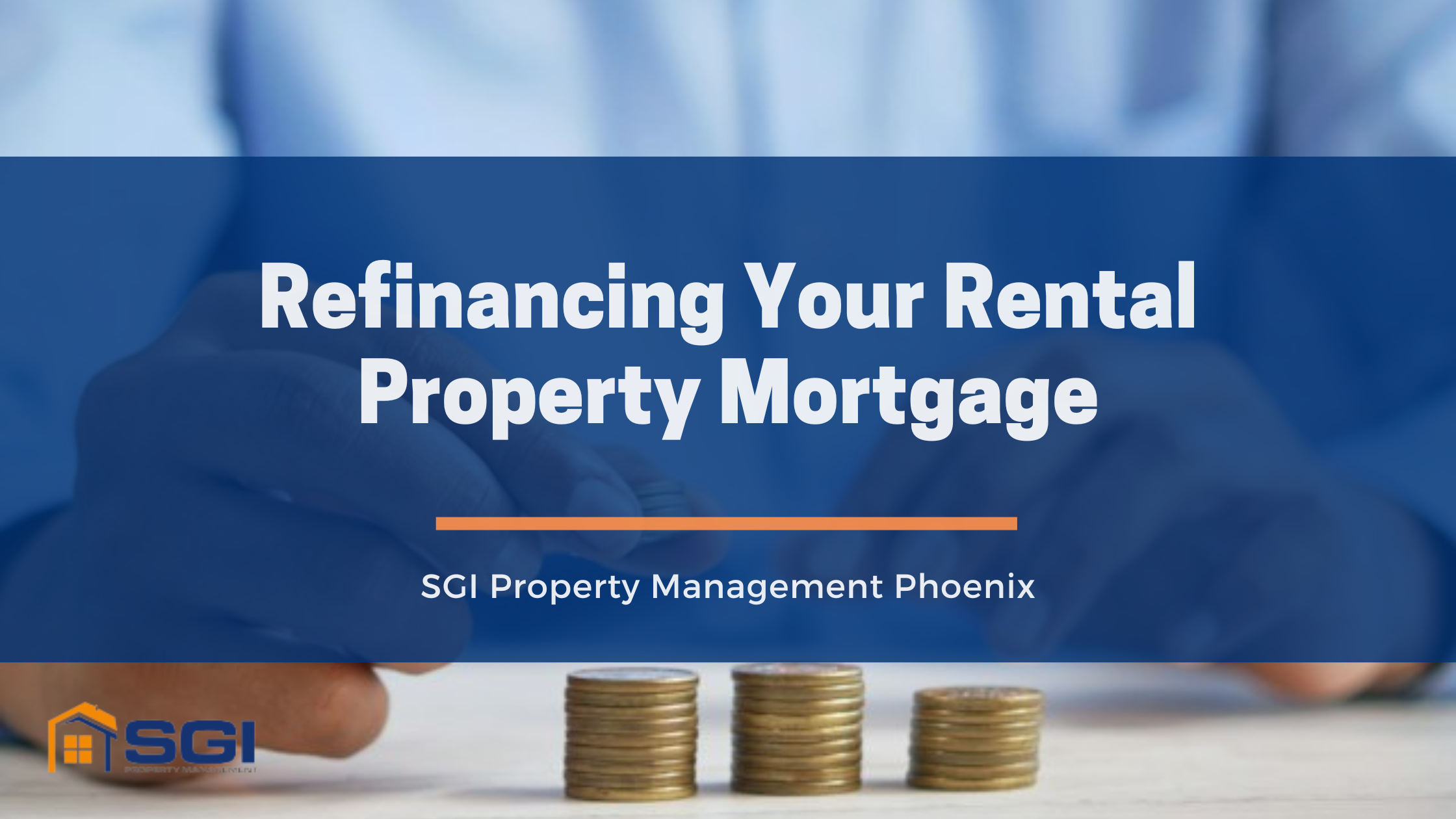
Key Takeaways
- Refinancing Can Improve Financial Flexibility: Refinancing a rental property can lower interest rates, adjust loan terms, or provide access to home equity—boosting cash flow and enabling reinvestment or property improvements.
- Meeting Refinancing Requirements Is Essential: Lenders evaluate factors like credit score, loan-to-value ratio, debt-to-income ratio, and income verification—so strong financial health is important to qualify for favorable terms.
- Weigh the Pros and Cons Carefully: While refinancing offers advantages such as lower payments and tax deductions, it also comes with potential downsides like higher interest rates for investment properties, closing costs, and stricter eligibility criteria.
Owning rental properties can be a lucrative investment strategy, providing a steady stream of income and long-term wealth accumulation. However, the financial landscape is ever-changing, and mortgage rates fluctuate over time.
CONTACT US TODAY FOR MORE INFORMATION
If you've been burdened with a high-interest rate or lack the capital to seize new investment opportunities, refinancing your rental property might be the solution. With recent declines in mortgage rates and the Federal Reserve's interest rate cuts, now could be an opportune moment to explore refinancing options with SGI Property Management Phoenix to enhance your financial flexibility.
Reasons to Consider Refinancing Your Rental Property
Refinancing your rental property can offer several advantages:
1. Lower interest rates
Securing a reduced interest rate can lead to substantial savings over the life of your loan. For example, refinancing a $150,000 mortgage from a 6% APR to a 5% APR could save you nearly $34,000 over 30 years.
2. Adjusting loan terms
Refinancing allows you to modify your loan's duration. Opting for a shorter term can increase monthly payments but decrease the total interest paid, while a longer term can lower monthly payments, easing cash flow.
3. Enhancing cash flow
By obtaining a lower interest rate or extending the loan term, you can reduce monthly mortgage payments, freeing up cash for other investments or expenses.

4. Accessing home equity
A cash-out refinance enables you to tap into your property's equity, providing funds for purchasing additional properties, paying off high-interest debts, or making property improvements.
5. Increasing property value
Using funds from a cash-out refinance to upgrade your property can make it more attractive to potential tenants, allowing you to command higher rents and increase your property's value.
Understanding Refinancing Requirements
Before proceeding with refinancing, it's essential to be aware of the typical requirements:
- Loan-to-Value (LTV) Ratio: Lenders often require a lower LTV for rental properties compared to primary residences.
- Credit Score: A good credit score is crucial for securing favorable refinancing terms. While some lenders may approve refinancing with a credit score as low as 620, aiming for a score of 670 or higher can help you obtain better rates.
- Debt-to-Income (DTI) Ratio: Lenders assess your DTI ratio to determine your ability to manage monthly payments. A lower DTI indicates better financial health and may improve your chances of approval.
- Income Verification: Lenders typically require proof of income, such as pay stubs or tax returns. Keep in mind that rental income may not always be considered, so having additional income sources can strengthen your application.
EXPLORE OUR PREMIER PROPERTY MANAGEMENT SERVICES
How to Refinance Your Rental Property
The refinancing process generally involves the following steps:
1. Gather Necessary Documentation
Prepare documents like proof of income, W-2 forms, homeowners insurance, and financial statements to facilitate the application process.

2. Submit Your Application
Apply with multiple lenders to compare offers. Some lenders may offer preapproval or prequalification options to give you an idea of potential terms.
3. Lock in Your Interest Rate
Once approved, review the loan terms and compare them with other offers. If satisfied, lock in your interest rate to protect against potential increases during the closing process.
4. Underwriting Process
The lender will verify your information, including income, assets, and property condition. This step may take several days to over a week.
5. Closing the Loan
Upon approval, you'll meet with the lender to finalize the loan agreement, pay closing costs, and officially complete the refinancing process.
Pros and Cons
While refinancing offers several benefits, it's important to consider potential drawbacks:
Pros
- Lower Monthly Payments: Reduced interest rates or extended loan terms can decrease monthly payments, improving cash flow.
- Access to Cash: A cash-out refinance provides funds for various purposes, such as property improvements or debt consolidation.
- Tax Deductions: Interest payments on loans for investment properties may be tax-deductible, depending on how the funds are used.
Cons
- Higher Interest Rates: Rental property loans often come with higher interest rates than primary residence loans due to increased risk.
- Closing Costs and Fees: Refinancing involves various costs, including appraisal fees, origination fees, and title insurance, which can add up.
- Eligibility Requirements: Meeting the necessary criteria, such as credit score, equity, and income, can be challenging for some property owners.

Can I Cash-Out Refinance a Rental Property?
If you want to access your rental property's equity rather than just lower your interest rate, a cash-out refinance could be a smart option. This involves replacing your current mortgage with a larger one and receiving the difference in cash. Many investors use this extra funding to improve the property, pay off other debts, or invest in additional real estate.
Using the funds for property upgrades can boost rental value, while purchasing another investment can expand your portfolio. Both strategies can support long-term growth when planned carefully and aligned with your financial goals.
However, increasing your loan balance also raises your monthly payments, so it’s important to confirm your rental income can comfortably cover the new amount. Since rental properties carry more risk than primary residences, lenders often impose stricter requirements and may charge higher interest rates.
Bottom line
Refinancing your rental property can be a strategic move to enhance your financial position, whether by lowering interest rates, accessing equity, or improving cash flow. However, it's crucial to carefully assess your financial situation, understand the requirements, and consider both the benefits and potential drawbacks.
LEARN MORE ABOUT OUR PROPERTY MANAGEMENT TEAM
Working with a financial advisor or mortgage specialist can help you make informed decisions based on your unique goals so you can confidently move forward with your investment strategy. Contact SGI Property Management Phoenix today!









